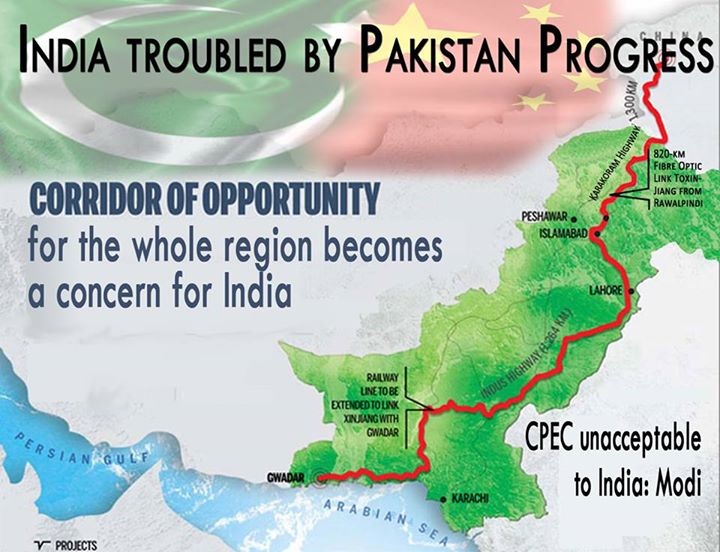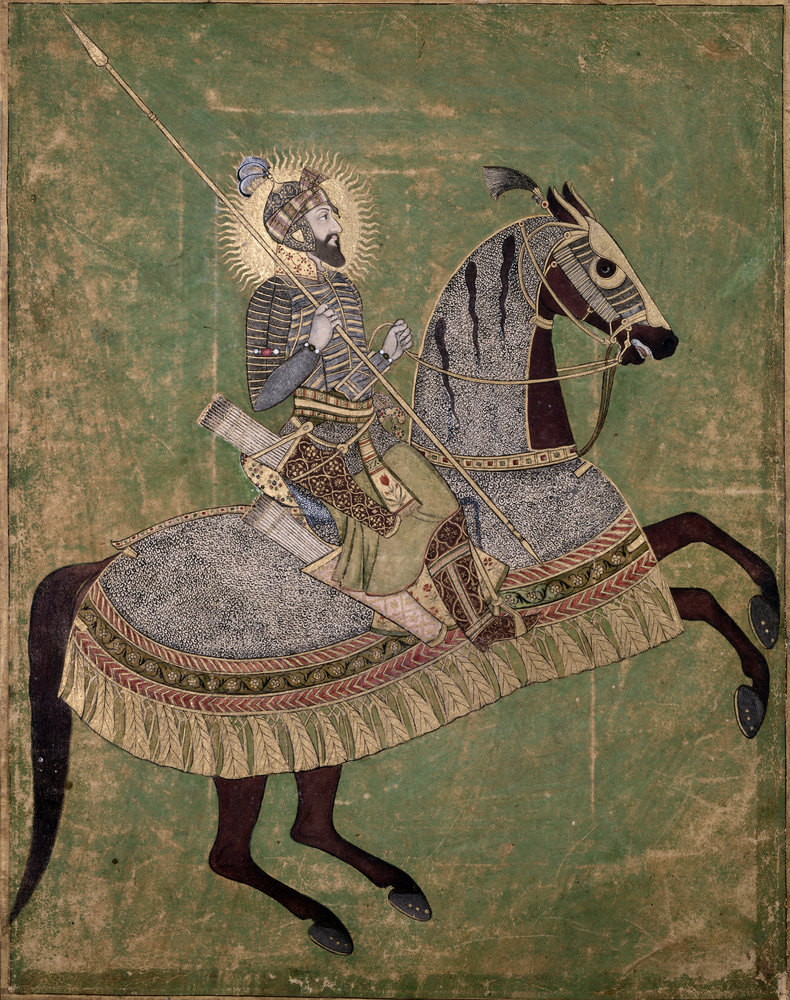
The Army, the Government, and the Chinese Corridor.
By
Saeed A. Malik.
The main driver of Israeli foreign policy objectives in the region is the Oded Yinon Plan i.e to break into small principalities, all Arab states which have the potential of being a threat to Israel any time in the future. Because of the incredible influence which Israel exercises on U.S policies, the Yinon Plan was infused into U.S policy for this region. Thus whatever the U.S objectives in the region, the play of the Yinon Plan can plainly be seen behind the U.S destruction of Iraq, Libya, and Syria. Even a fool could have foreseen that the de-baathification of Iraq, and the dismemberment of its army would lead to the dismemberment of the state itself. Indeed Gen Shinseki advocated that the invasion force should be half a million U.S troops so that post-invasion stability of governance would be ensured, as did Colin Powell. The former was forcibly retired, while the latter was marginalized, and we see Iraq precisely in a state as Yinon had advocated. The same is true of Libya, and the same is the aim for Syria.
Israel tried its very best that Iran too should be destroyed and split into small principalities, but the sheer exhaustion visited on the U.S by the Iraqis who decided to fight back, foreclosed this option. This being the situation, how can Israel countenance a strong and thriving Pakistan, which not only has the bomb, but also varied delivery systems, and which Israel sees as an enemy? Logically therefore a failed Pakistan, which international powers would be obliged to de-nuclify would be much more in Israel’s interests–and by extension, those of the U.S as well.
Apart from the Israeli-U.S policy nexus vis a vis a Pakistan whose nuclear wings must be clipped, the U.S has other concerns about a strong Pakistan which is averse to taking dictation from the U.S. One of these concerns is that Pakistan is refusing subservience to the U.S Afghan policy objectives where such objectives are seen as undermining Pakistan’s perception of its own national interest. Another U.S concern is that whereas the U.S would like to see India built up as a credible counter-weight to China, Pakistan, by constantly snapping at India’s heels is a constant distraction in the way of the achievement of this U.S aim. And most importantly, Pakistan, by allowing China an opening onto the Arabian Sea, is directly undermining the most important driver of the U.S foreign policy i.e the containment of China, which it sees as the premier challenge to U.S hegemony around the world.
The third country which would like the CPEC initiative nipped in the bud is India, which sees Pakistan as a nuisance in the way of its becoming the unchallenged regional hegemon of the area; and this is quite apart from the ideological view that India’s independence from colonial rule cannot be considered complete till such time as it is ” akhund” [complete] again.
Pakistan should therefore have absolutely no doubt that these three countries [ plus their allies] will strain every sinew of their power towards sabotaging the CPEC.
And what are the tools they will employ to undermine Pakistan? These tools are already deployed and are in operation for all to see, except for those of us who are willfully blind:
–Aiding the terrorist onslaught against Pakistan. Dont we already know this, and the names of countries involved?
–Burdening Pakistan with a volume of debt which it will never be able to repay. Why is it after all that IMF obliges Ishaq Dar each time he goes to them, begging bowl in hand? Does anyone, anywhere in the world, freely extend credit to a country or entity which is a bad credit risk? Cant we see through this easy credit? Cant we see that in less than 5 years we will have reached a debt ceiling which it will be beyond our capacity to repay? And what happens then? Is this not a road to default and sanctions, which will lead to Pakistan giving up its nuclear assets?
–And the most potent tool of all–key members of our national “leadership”, both here and in Dubai, willfully undermining the very foundations of the state by both hollowing out the country financially, and also selling it out to those bidding for its ultimate demise! Does anyone not see this happening already? Which one of our top leaders is not a billionaire? And which of these has made his billions through honest sweat? And will such people, who can sell their grandmothers for a pittance, not sell off their country when the time comes? The problem is that the time is already here and the sale is going on day and night.
Unfortunately, it is said to be extremely high interestin loan facility from China i.e @ $4.5 + Libor
It is not for nothing that as the Chinese unfolded their plans for the CPEC, they went to the Army Chief for guarantees of security. This was not just a comment on the power the Army enjoys, but more so a comment on the lack of trust which may credibly be imposed in our civilian leadership.
But with the politicians now haggling over the route of the CPEC, the Chinese have issued statements of concern which have been released to the press. This is not the way the Chinese function. They eschew press statements and use them only as a last resort. The level of Chinese concern should make it clear that the enemy sleeper cells among our national leadership have been activated to sabotage the project. This has been the standard operating procedure to undermine third world countries by the first world for decades.
If it is not the case already, the Army should wake up to what is happening. It should also include mega corruption, which has undermined the country and taken it to the very brink, as a national security imperative. If the Army refuses to see the writing on the wall, it must know that its days of glory and power cannot be extended to beyond five years, because then it may not have a country to defend. And then all the Generals will be like the rest of us. It is my bet that in five years or less the IMF will call in our debts, and we will not be able to repay. The Last Post will then be sounded.
Saeed A. Malik.


